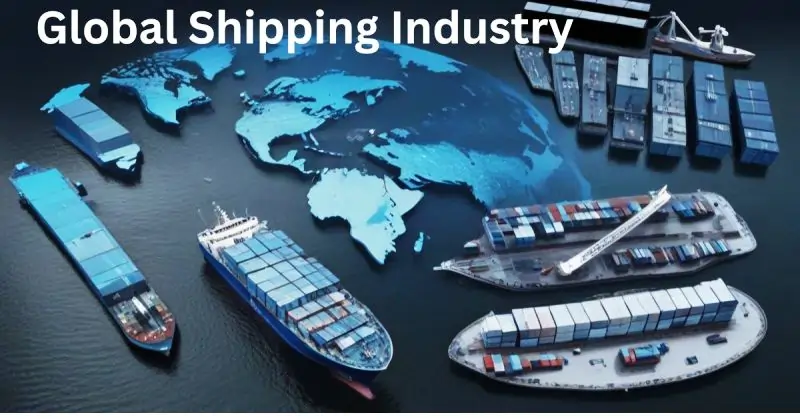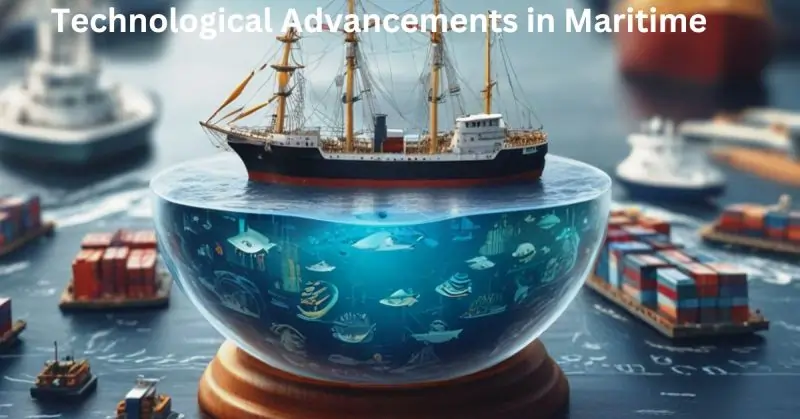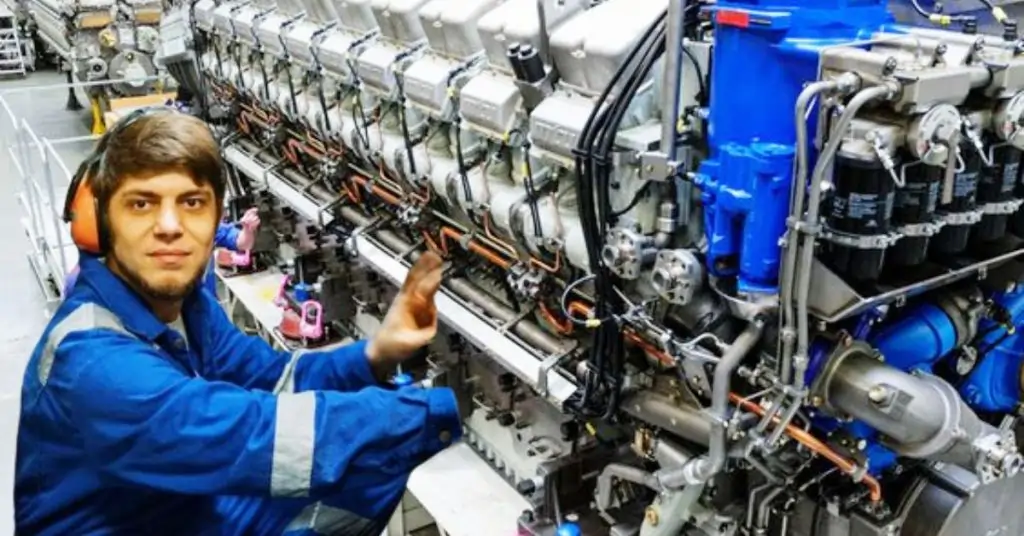Are marine engineers in demand?
The demand for marine engineers is skyrocketing, with the global maritime industry predicted to grow by over 4% annually. “The future of shipping depends on the expertise of marine engineers,” states a recent industry report. This surge underscores the crucial role these professionals play in ensuring the smooth operation and innovation of marine vessels. Pursuing a career in marine engineering offers a wealth of opportunities and rewards, making it an excellent choice for aspiring engineers.
In this article, we’ll explore ten powerful reasons why becoming a marine engineer is a smart and fulfilling career move. From the booming global shipping industry and cutting-edge technological advancements to competitive salaries and the chance to travel the world, marine engineering offers a diverse and stable career path. We’ll also delve into the personal fulfillment and significant economic impact that comes with this profession, providing a comprehensive look at why marine engineers are so vital today.
Reason 1: Booming Global Shipping Industry

The Shipping Industry’s Unstoppable Growth
The global shipping industry is experiencing unparalleled growth, driven by a significant increase in international trade. As more goods are transported across the world, the demand for efficient and reliable shipping services continues to rise. This surge in trade necessitates the expansion of shipping routes and fleet sizes, creating a robust and dynamic maritime sector.
With the industry expanding at such a rapid pace, the need for skilled marine engineers has never been greater. These professionals are essential for maintaining and enhancing the performance of increasingly sophisticated vessels. Marine engineers play a critical role in ensuring the safe, efficient, and environmentally responsible operation of ships, making them indispensable in supporting the global economy’s growth and sustainability.
The booming shipping industry offers a wealth of opportunities for marine engineers, providing a stable and rewarding career path in a field that is crucial to worldwide commerce and trade.
Reason 2: Technological Advancements in Maritime

Embracing Cutting-Edge Maritime Technologies
The maritime industry is at the forefront of technological innovation, rapidly integrating automation and artificial intelligence (AI) into shipping operations. This transformation is revolutionizing the way ships are designed, built, and operated, making maritime engineering an exciting and dynamic field.
Marine engineers now have the opportunity to work with state-of-the-art technologies, from autonomous vessels and smart navigation systems to advanced propulsion methods and energy-efficient solutions. These innovations not only enhance the safety and efficiency of maritime operations but also contribute to sustainable practices within the industry.
Staying updated with the latest technological trends is crucial for marine engineers. Continuous learning and adaptation ensure that they remain competitive and capable of leveraging new tools and methodologies. Embracing these cutting-edge technologies allows marine engineers to drive progress and innovation, positioning themselves as vital contributors to the future of maritime engineering.
Reason 3: Environmental and Safety Regulations
Navigating New Environmental Challenges
The maritime industry is increasingly governed by stricter environmental laws and safety standards, aimed at reducing the ecological impact of shipping and ensuring the safety of operations. These regulations are driving significant changes in how vessels are designed, maintained, and operated.
Marine engineers play a crucial role in ensuring compliance with these stringent standards. They are at the forefront of developing innovative solutions that not only meet regulatory requirements but also enhance the sustainability and efficiency of maritime operations. From designing energy-efficient engines to implementing waste reduction technologies, marine engineers are pivotal in the industry’s shift towards greener practices.
The push for eco-friendly and sustainable solutions presents a unique opportunity for marine engineers to contribute to a cleaner and safer maritime environment. Their expertise and ingenuity are essential in navigating these new environmental challenges, making a substantial impact on the global effort to protect our oceans and the planet.
Reason 4: Diverse Career Opportunities

Exploring a World of Opportunities
The maritime industry offers a vast array of career opportunities for marine engineers, making it a field rich with potential and diversity. From ship design and maintenance to operational management, marine engineers can explore various roles that match their interests and skills.
Within ship design, marine engineers can innovate and create new vessel models, integrating advanced technologies and ensuring optimal performance. In maintenance, they play a critical role in the upkeep and repair of ships, ensuring safety and efficiency in maritime operations. Operational roles allow marine engineers to oversee the daily functions of vessels, navigating complex logistical challenges and enhancing overall productivity.
The maritime industry also provides ample opportunities for career growth and specialization. Marine engineers can advance to senior management positions, lead large projects, or specialize in niche areas such as underwater engineering, renewable energy integration, or maritime cybersecurity. This diverse landscape ensures that marine engineers can find fulfilling and dynamic career paths, contributing to the evolving needs of the global maritime sector.
Reason 5: Competitive Salaries and Benefits
Enjoying Attractive Compensation
Marine engineers are reaping the benefits of a high-demand profession, with competitive salaries reflecting their essential role in the maritime industry. The growing need for skilled professionals to maintain and innovate within the field has led to lucrative pay scales, rewarding marine engineers for their expertise and dedication.
Beyond competitive salaries, marine engineers often receive comprehensive benefits packages that enhance their overall compensation. These packages can include health insurance, retirement plans, and bonuses, providing financial security and peace of mind.
The potential for financial stability and growth within this career is significant. As marine engineers gain experience and advance in their careers, they can expect increased earning potential and opportunities for further financial growth. This attractive compensation landscape makes marine engineering a highly rewarding profession, both in terms of immediate benefits and long-term financial prospects.
Reason 6: Long-Term Job Security
Ensuring a Stable Career
Marine engineering offers long-term job security, a significant advantage in today’s fluctuating job market. The consistent demand for marine engineers, driven by the ever-growing maritime industry, ensures a steady flow of employment opportunities.
Compared to other engineering fields, marine engineering stands out for its stability. The critical role of marine engineers in maintaining and advancing maritime operations means that their skills remain essential, regardless of economic cycles.
Moreover, the field experiences fewer layoffs and job redundancies, providing an additional layer of job security. This reliability makes marine engineering a wise career choice for those seeking a stable and enduring professional path. As the maritime industry continues to expand and innovate, the demand for skilled marine engineers will only grow, solidifying their position as indispensable contributors to global trade and transportation.
Reason 7: Global Travel Opportunities
Seeing the World While You Work
One of the most exciting aspects of a career in marine engineering is the opportunity for global travel. Marine engineers often find themselves traveling to various international locations, from bustling port cities to remote shipyards. This constant movement allows them to experience the world in a unique and dynamic way.
Traveling to diverse international locations not only broadens their professional horizons but also enriches their personal lives. Marine engineers get to immerse themselves in different cultures, gaining a deeper understanding of global perspectives and customs. This exposure fosters a more well-rounded worldview and cultivates a sense of cultural appreciation and adaptability.
The experiences gained from working in varied environments also enhance both personal and professional growth. Marine engineers develop crucial skills such as problem-solving, adaptability, and communication, which are invaluable in their careers. The challenges and opportunities encountered while working globally contribute to their expertise and confidence, making them more competent and versatile professionals.
In essence, the global travel opportunities in marine engineering offer more than just the thrill of seeing new places. They provide a platform for significant personal development and professional advancement, making this career path both enriching and rewarding.
Reason 8: Innovation and Research
Leading the Way in Maritime Innovation
Marine engineering is a field that thrives on innovation and research, offering professionals the chance to be at the forefront of technological advancements in the maritime industry. Marine engineers are actively involved in cutting-edge research, working on projects that push the boundaries of what is possible in ship design, propulsion systems, and maritime operations.
Involvement in such pioneering research means marine engineers contribute significantly to the development of new technologies. Whether it’s creating more efficient engines, developing sustainable energy solutions, or enhancing vessel safety systems, their work is crucial in driving the industry forward. These innovations not only improve the performance and safety of ships but also help in reducing the environmental impact of maritime activities.
Opportunities to lead and participate in these innovative projects are abundant. Marine engineers often collaborate with leading research institutions, technology firms, and maritime organizations. This collaboration fosters a stimulating environment where creativity and technical expertise converge, leading to groundbreaking developments.
Being at the forefront of innovation also means that marine engineers are continuously learning and evolving. They stay updated with the latest technological trends and advancements, ensuring their skills and knowledge remain relevant and cutting-edge. This constant exposure to new challenges and technologies keeps the profession exciting and fulfilling.
Reason 9: Significant Economic Impact
Contributing to the Global Economy
Marine engineer play a crucial role in facilitating global trade, a cornerstone of the modern economy. By ensuring that ships operate efficiently and safely, they help maintain the seamless flow of goods across international waters. This constant movement of products is vital for the economies of countries worldwide, underpinning everything from consumer goods availability to industrial supply chains.
The impact of marine engineers on economic growth and development is substantial. Their expertise in maintaining and advancing maritime technology directly influences the cost-effectiveness and reliability of shipping services. By optimizing fuel consumption, enhancing vessel durability, and implementing advanced navigation systems, marine engineers contribute to reducing operational costs and improving overall efficiency. These improvements can lead to lower shipping costs, which benefit businesses and consumers alike.
The maritime industry itself is a significant pillar of the global market, accounting for the transportation of over 80% of the world’s trade by volume. Marine engineer is essential to the industry’s sustainability and growth. Their work in developing eco-friendly technologies and ensuring regulatory compliance supports the industry’s efforts to reduce its environmental footprint, promoting sustainable economic practices.
Reason 10: Personal Fulfillment and Achievement
Finding Personal and Professional Satisfaction
A career in marine engineering offers profound personal fulfillment and professional achievement, driven by the unique challenges and impactful contributions inherent in the field. Marine engineers are often tasked with solving complex engineering challenges, requiring innovative thinking and technical expertise. This problem-solving aspect is intellectually stimulating and provides a continuous sense of engagement and growth.
The successful resolution of these challenges brings a deep sense of accomplishment. Whether it’s designing a more efficient engine, implementing a cutting-edge navigation system, or enhancing the sustainability of maritime operations, marine engineers can see the tangible results of their efforts. This direct impact fosters a strong sense of pride and satisfaction, knowing their work improves the functionality and safety of vessels around the world.
Beyond personal achievement, marine engineers make a significant difference in the maritime industry. Their contributions ensure that ships operate smoothly, safely, and sustainably, supporting the global economy and promoting environmental stewardship. The advancements they bring to the industry not only enhance the efficiency of maritime operations but also help mitigate the environmental impact of shipping, contributing to a more sustainable future.
This combination of intellectual challenge, tangible accomplishments, and meaningful impact creates a uniquely rewarding career path. Marine engineers enjoy the satisfaction of knowing their work is critical to the success and advancement of one of the world’s most vital industries. This sense of purpose and the opportunity to make a lasting difference are powerful motivators, providing both personal and professional fulfillment in the field of marine engineering.
FAQ on “Is Marine Engineering a Good Career”
Q: Is Marine Engineering a good career?
A: Yes, Marine Engineering offers exciting challenges and global opportunities.
Q: What are the benefits of choosing Marine Engineering?
A: Marine Engineering provides excellent job prospects, competitive salaries, and international exposure.
Q: Are there growth opportunities in Marine Engineering?
A: Absolutely, with advancements in technology, Marine Engineering offers continuous learning and career progression.
Q: Is Marine Engineering suitable for those passionate about the sea?
A: Yes, if you love the ocean and want a fulfilling technical career, Marine Engineering is a perfect fit.
Conclusion
In conclusion, the demand for marine engineers is not only strong but continually growing, driven by various factors such as the expansion of the global shipping industry, technological advancements, and stricter environmental regulations. Pursuing a career in marine engineering offers a multitude of benefits, including diverse career opportunities, competitive salaries, long-term job security, and the chance to travel the world. Moreover, marine engineers play a vital role in fostering innovation, contributing significantly to the global economy, and making a meaningful impact on the maritime industry.
By solving complex engineering challenges and achieving tangible results, marine engineers find personal and professional satisfaction in their work. As the maritime industry continues to evolve and face new challenges, the need for skilled and dedicated marine engineers will remain crucial. This dynamic and rewarding career path not only promises stability and growth but also provides the opportunity to make a significant difference in the world.
For those considering a career in marine engineering, now is the perfect time to embark on this exciting journey. The future of the maritime industry relies on the expertise and innovation of marine engineers, making it a field full of promise and potential. Whether you’re driven by the desire to innovate, the excitement of global travel, or the satisfaction of contributing to a sustainable future, marine engineering offers a fulfilling and impactful career choice.
